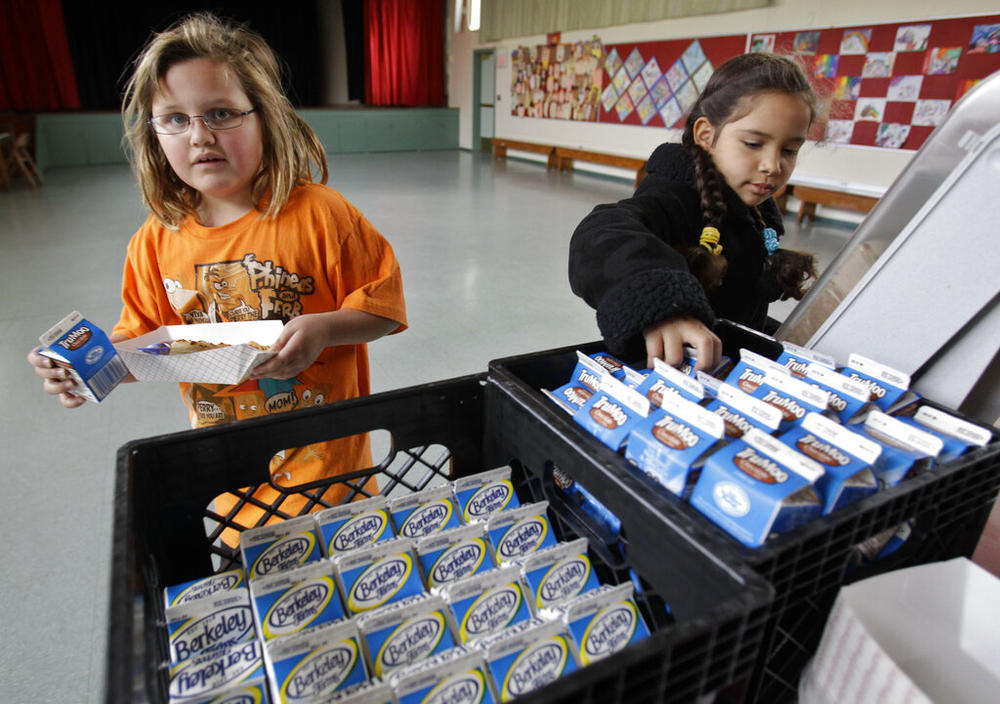
Caption
Fairmeadow Elementary School third grade students Ellery Carlson, left, and Tatiana Aboytes, right, pick chocolate milk during a school lunch program.
Credit: (AP Photo/Paul Sakuma)
If Congress does not renew childhood school nutrition waivers, issued during the pandemic, some families will lose access to free and reduced lunch programs. GPB’s Ellen Eldridge reports.

Fairmeadow Elementary School third grade students Ellery Carlson, left, and Tatiana Aboytes, right, pick chocolate milk during a school lunch program.
Some Georgia families will lose access to free and reduced school lunch programs if Congress does not renew childhood school nutrition waivers issued during the pandemic.
The waivers that provide schools and childcare centers with flexibility are about to expire at the end of the school year.
Public health advocates argue if the waivers expire prematurely, children will lose out on a consistent source of nutrition; families will have a harder time affording food; and schools will face increased financial difficulties.
"We're calling on Congress to extend this provision through the school year of 2022-23 and to seriously consider making this permanent," said Jamie Bussel, a senior program officer with the Robert Wood Johnson Foundation. "This should be a national priority."
With these waivers, or flexibilities, schools have been permitted to serve meals to all students free of charge.
"And that has been an incredibly powerful and impactful response in the midst of so many challenges, financially, that families have faced throughout the last two years," she said.
Even with declining COVID-19 cases, these programs have only become more needed as the pandemic continues, said Dr. Evelyn Johnson, a pediatrician with Southeast Georgia Health System-Brunswick Campus.
Childhood hunger is nothing new, she said, and we know how hunger hurts kids.
"It's an invisible problem, but research shows that children who live in households that lack access to food are very likely to be sick more often," Johnson said. "They recover from illness more slowly, and they're hospitalized more frequently."
Federal programs such as Women and Children (WIC) and the Supplemental Nutrition Assistance Program (SNAP) have been around for decades.
"One of our jobs as pediatricians is to remind (patients), if they were not aware, that these programs exist: WIC, SNAP, the pandemic EBT, the school lunch programs, the after school lunch programs, the full breakfast programs," Johnson said. "They're there and we want our families to access this."